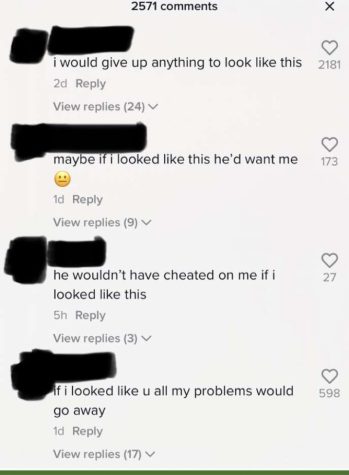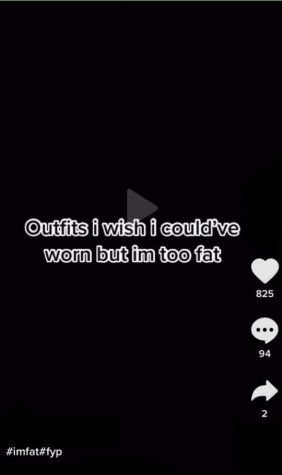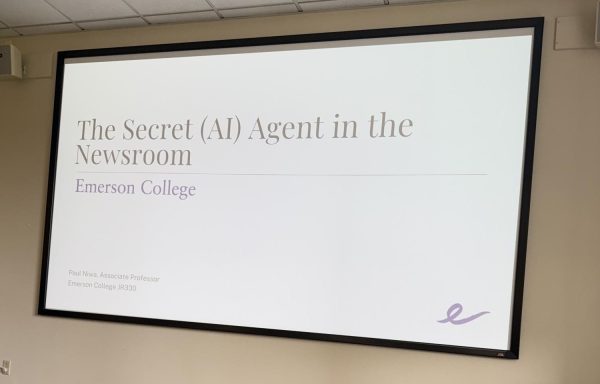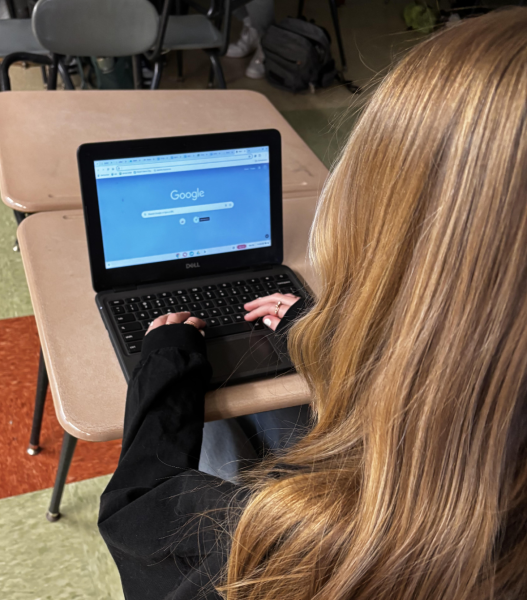Opinion: Social Media Awareness
TikTok: Its effects on body image and self confidence
If you’re a teenager with a device – you probably have the app TikTok. With an estimated 65.9 million active users just in the United States, it is one of the most popular social media apps in the world. This app serves as a platform for creators to post videos, like and share other creators videos, and comment on posts. TikTok has many positive aspects such as bringing awareness to certain topics, making people laugh with humorous videos, and giving a way for friends to communicate with each other.
But, with each social media platform comes its negative aspects as well. Over the past couple of years the trends have changed, but one seems to stay relevant: diet culture and unhealthy stereotypes. Videos on body shaming, unhealthy eating habits, and just overall promoting diet culture have been all over the app, for all ages to see. Although, after asking around, the videos seem to mainly show on adolescent girls’ recommended pages.

Many people push towards diet culture and unhealthy stereotypes, sometimes being unaware of what they are doing. Commenting on “skinny” peoples’ pages, “You are way too skinny. You need to eat something.” Conversely, comments on “bigger” peoples’ pages read: “Wow, you have so much confidence posting this. You are so brave!” These simple comments can wreck a person’s self confidence and body image. Further, that pushes towards eating disorders, dieting, and low self-esteem. TikTok not only allows these comments to be posted, but does not take them down.
Many people, often young girls, post “What I Eat in a Day” videos. In most, they are consuming less than 1,000 calories per day. This can trick young girls into thinking they have to eat like these specific people to achieve their ideal body. Although the recommended calorie intake differs from person to person based on factors such as age, metabolism, and levels of physical activity, the recommended calorie intake for a teenage girl according to the American Academy of Pediatrics is 2,200 calories per day. In the comments, other adolescents talk about being jealous of these girls, wanting to lose weight, and their insecurities about themselves. Oakmont freshman, Rebecca Alves commented on this topic, “I try to eat ‘healthier’ when in reality it is just eating once a day. Maybe working out? But when I don’t get the result I want I feel worse of myself and wonder why I am so weak.” Many teenagers feel the same.
Other girls make videos in bikinis stating their weight and height. They are usually extremely thin, causing insecurities amongst their viewers. Oakmont freshman, Tatum Sarasin, commented on these recent trends, “I have seen really little kids like elementary school and 6th graders and it is very sad.” When asked about seeing TikToks revolving around diet culture and unhealthy stereotypes, she said, “Yes, like people showing what they eat in a day and it not being enough.”
Alves also noticed the craze saying, “Constantly, videos are put on my for you page (recommended page) of skinny girls, girls who look older than their age, the typical bikini body everyone dreams of. Constantly, I am comparing myself to them, wondering why I don’t look like them, or what I can do to be like them.”

Most of these videos are not taken down. If they are, it is usually by the creator or if enough people report it. Yes, TikTok does have anorexia, bulimia, orthorexia, etc. hotlines, but it does not do enough to prevent these videos and really make a difference. When you open the app, it usually has an ad.
I think that TikTok should take advantage of this and either change the ad, or add on another one talking about body positivity, hotlines, and stating that if you post a negative video with the intention of hurting others that it will be taken down and your account will be suspended. If you give people a potential consequence, I believe that will help stop these videos.
Although TikTok has partnered with the National Eating Disorder Association and made hotlines available, there is still some obvious work to be done. Alves said, “It’s an ongoing spiral where you will never feel good in your own skin comparing yourself to others. It’s not reality. Nobody is perfect but it is hard to remember that when you see ‘perfect’ girls constantly on your for you page and instagram feed.”
Bluntly, TikTok should be doing more about these videos. Creators should be sharing awareness instead of posting videos made to make others insecure. If enough people report the videos, they will most likely be taken down. As a whole, everyone should be doing as much as possible to stop these videos and keep everyone safe. Until that happens, be sure to appreciate you and don’t let social media shape your identity – especially if it is based on a trend of unhealthy dieting and body image.

Gianna Caforio, Class of 2025, is a journalist for the Oakmonitor. At Oakmont she is involved in S.A.F.E., Class Office (secretary), friends club, and...






